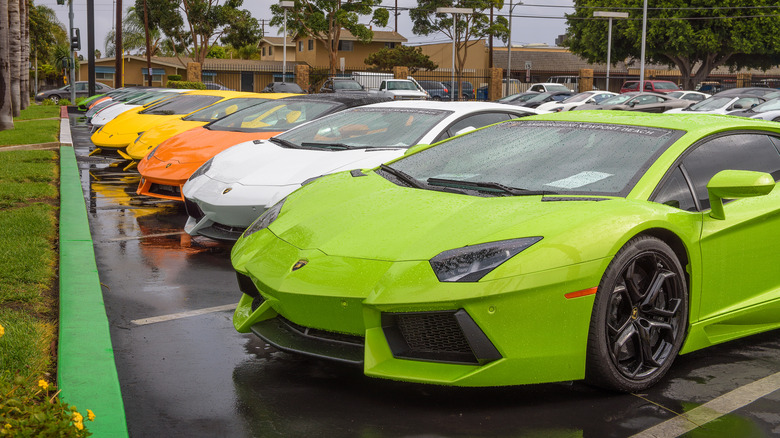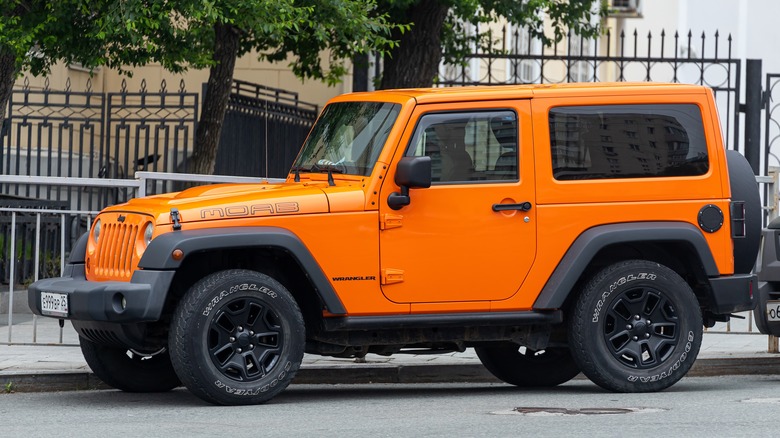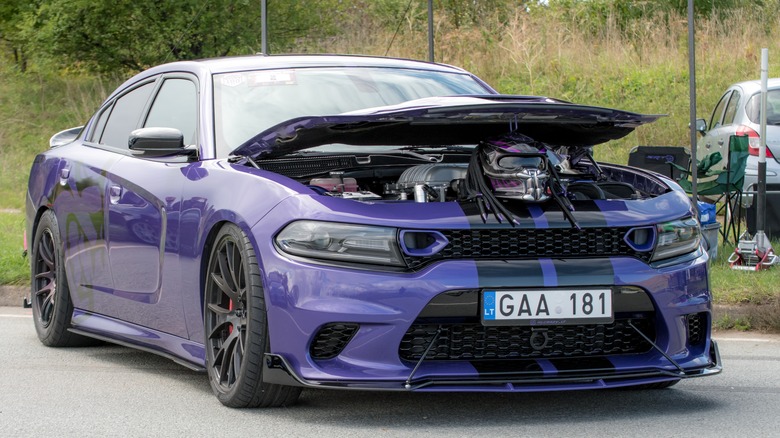How Your Car's Paint Color Impacts Resale Value (And Which Colors Hold The Most Value)
You made the right choice if you recently bought a yellow, orange, or purple car. According to a recent study by iSeeCars, color significantly affects a car's resale value, and data shows bright-colored paint jobs hold value quite well. The survey has shown that the highest depreciating color could lose nearly four times its value, while some particular colors have a minimal impact come resale time.
iSeeCars analyzed the data of over 650,000 used cars (2019 model year) sold between August 2021 and May 2022. After comparing used car prices with the average MSRP, and sorting the vehicles by body style and car color, the study reveals that bold and striking colors tend to hold value better than the typical whites, blacks, and grays.
"A vehicle's color is among the primary considerations after shoppers have decided on a make and model," said Karl Brauer, iSeeCars executive analyst. "With depreciation being the highest cost of vehicle ownership, consumers should carefully consider their color choice, especially if they plan on selling their vehicle."
Buying a new car? Choose a brighter color
If you're eyeing a new car, the colors yellow, orange, purple, red, and green depreciate the lowest, while brown vehicles lose their value 1.2 times faster than the average. "Because yellow vehicles are so novel in the secondhand marketplace, people are willing to pay a premium for them," adds Brauer. Meanwhile, orange takes second place, while black, gray, white, and silver paint have average depreciation.
On the other hand, jewel tones like green, blue, red, and purple hold their value better than beige, a neutral color that depreciates a few notches above average. "Although the term 'beige' has become synonymous with boring, it encompasses a spectrum of hues from off-white to a light brown and stands out in a parking lot while still being a neutral color," said Brauer.
Of course, this means that limited-edition vehicles like the Mazda MX-5 30th Anniversary Edition, sold in an exclusive "Racing Orange" paint, or the Toyota GR86 Special Edition in Solar Shift Orange, will typically come with higher prices in the used car market than whites, blacks, or grays.
The same rule applies to SUVs
As it turns out, bright-colored SUVs like yellow, orange, green, red, and purple depreciate the lowest compared to white, beige, black, gold, and brown. However, beige rules the pickup truck segment next to orange, gray, blue, and brown. Alternatively, purple, yellow, and green pickups depreciate faster than average. "Toyotas represent the vast majority of available beige pickups, and their stellar value retention helps beige trucks maintain their value," said Brauer.
In a somewhat unexpected twist, the analysis reveals that green, brown, blue, purple, silver, and gray depreciate the lowest in the minivan segment. However, white, black, and red lose value faster than average. "Minivans are a sensible vehicle choice, so purchasing a less-common color can make it a more exciting purchase," Brauer adds.
So if you want a minivan, make it green, blue, or brown to maximize your investment, and stay away from red, white, or black if you can help it.
Black sedans lose their value the quickest
Nothing drips like a freshly washed and waxed black sedan. Then again, black sedans — together with white and brown — lose their value the fastest. On the other side of the fence is purple, red, green, orange, and silver, colors that hold their value well over three years. "Purple is one of the least common colors in the sedan segment, and the popular Dodge Charger contributes to the favorable resale value of purple sedans."
But when it comes to sports coupes and convertibles, bright colors like reds, yellows, oranges, purples, and greens hold their value better than conservative gray, silver, and black hues. Moreover, the survey shows that white sports cars depreciate the fastest on a three-year average.
With this study in mind, vehicle color seems more concerned with economics than aesthetics. "A car's color affects its value, which is especially important for drivers who plan on turning in their vehicles after a few years," Brauer concluded. Might be worth remembering these tips the next time you go car shopping.



